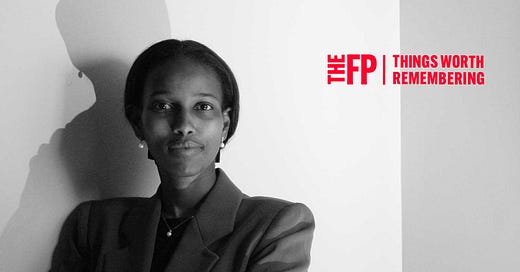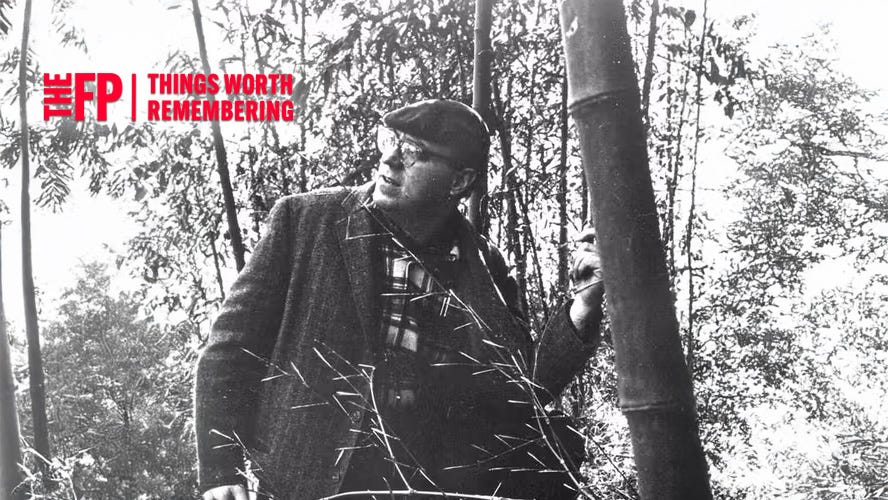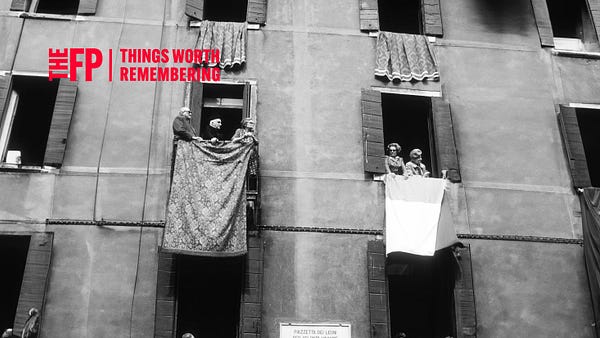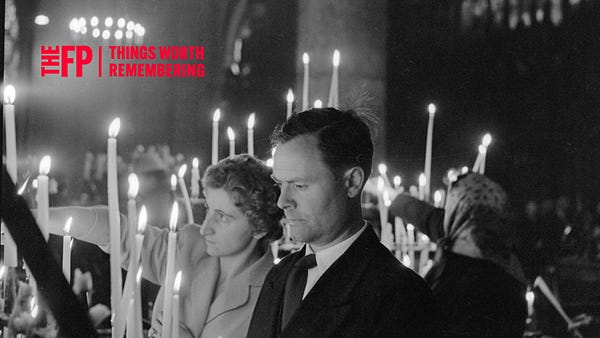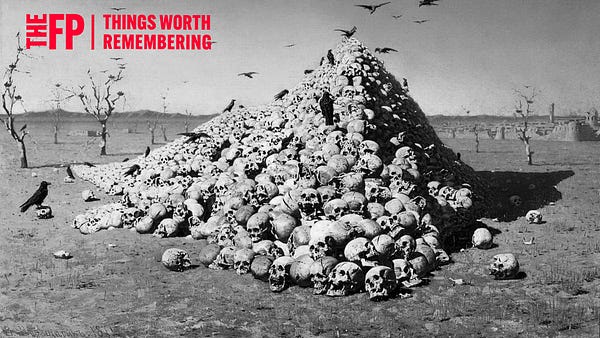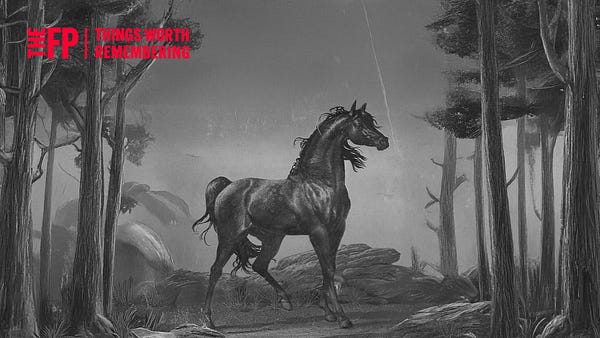
Welcome to Douglas Murray’s column, “Things Worth Remembering,” in which he presents great speeches from famous orators we should commit to heart. Scroll down to listen to Douglas read from Ayaan Hirsi Ali’s 2006 statement on leaving the Netherlands.
Twenty years ago, as the world was focusing on an election in America, something happened in Amsterdam that, in many ways, was even more important.
On November 2, 2004, the Dutch filmmaker Theo van Gogh was murdered in the city center, in the morning, while bicycling to work. His killer, Mohammed Bouyeri, then 26, explained in a note stabbed into van Gogh’s stomach that van Gogh’s film Submission was guilty of “blasphemy”—it criticized Islam’s treatment of women—and he threatened that van Gogh’s colleague Ayaan Hirsi Ali, the Jews, and other nonbelievers would meet a similar end.
Van Gogh’s murder came two years after that of gay right-wing politician Pim Fortuyn—shot to death nine days before a general election, which the party he led looked likely to win. His killer, Volkert van der Graaf, said he killed Fortuyn, who had called Islam “backward” and supported ending immigration, as a favor to the Netherlands’ Muslim community.
Up until then, the country had been relatively peaceful. But the murders, coming in such quick succession, and so barbarous in their nature, shocked the Dutch to their core.
On Thursday evening, just two days after another American election, scenes of Jews being ambushed and beaten on the streets of Amsterdam started popping up on our social-media feeds—most legacy media took their time before reporting on the violence.
It was a reminder that, despite the early warning signs, the Dutch have done less than nothing to sort out their problems.
In fact, as I described in my 2017 book The Strange Death of Europe: Immigration, Identity, Islam, they have actually turned on the people who identified those problems—principally, Ayaan Hirsi Ali.

